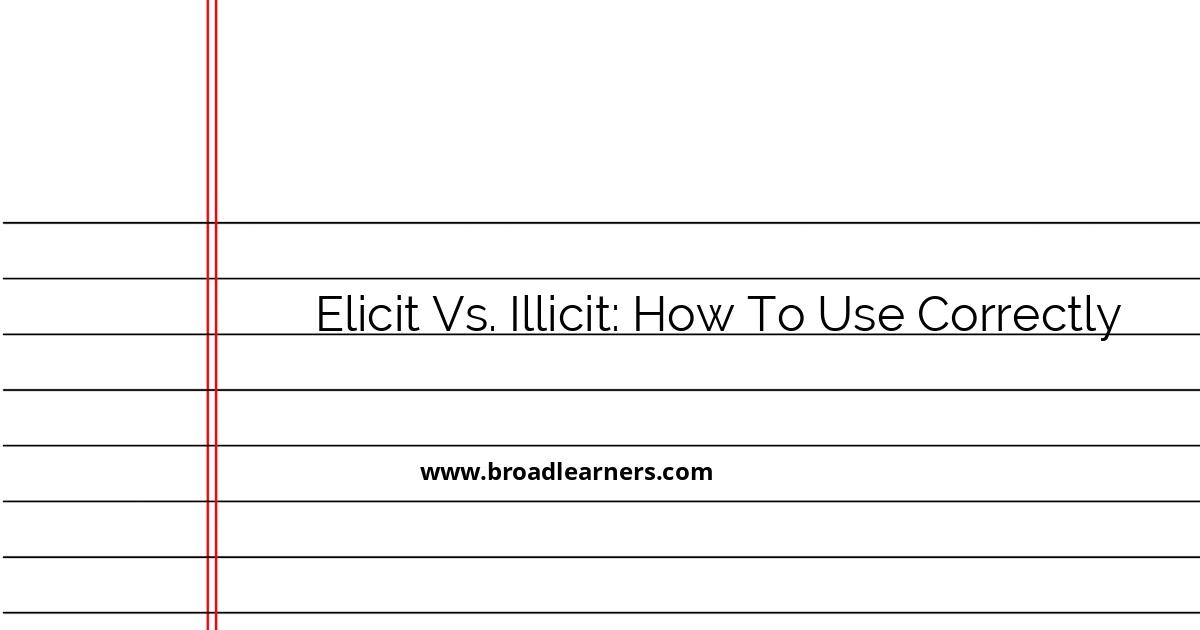The English language is replete with words that sound similar but have different meanings, often leading to confusion. Two such words are 'elicit' and 'illicit'. Despite their phonetic similarities, these words belong to completely different categories in terms of meaning and usage. By understanding their definitions and contextual applications, users can confidently and correctly incorporate them into their vocabulary.
- Definition of 'Elicit'
The verb 'elicit' means to draw out or evoke a response, answer, or fact from someone. Often used in contexts where information, reactions, or emotions are being solicited, 'elicit' emphasizes the act of obtaining something that is not immediately apparent or voluntarily given.
Example:
The investigator aimed to elicit a confession from the suspect during the interview.
- Definition of 'Illicit'
The adjective 'illicit' signifies something that is unauthorized or illegal. It applies to acts or behaviors that are forbidden by law, rules, or social conventions, highlighting an element of immorality or unlawfulness.
Example:
The authorities conducted an operation to crack down on the illicit drug trade that had proliferated in the area.
Let us now explore the distinct uses of each word in more detailed contexts:
Using 'Elicit' Correctly
When employing the word 'elicit', consider situations that involve extracting or obtaining information through proper inquiry or interaction. The focus is on the active process of engaging with someone to reveal or provoke a reaction.
Example 1:
The teacher's innovative method was successful at eliciting student participation in the discussions.
Example 2:
The therapist managed to elicit an emotional response from the patient, which was crucial for their treatment progress.
Using 'Illicit' Correctly
'Illicit' is typically reserved for activities or objects that are illegal or morally reprehensible. It underlines the consequences and societal disapproval associated with such conduct.
Example 1:
In an effort to curb illicit activities, the government imposed stricter regulations on contraband items.
Example 2:
The company faced serious charges due to the illicit dealings of its senior executives.
- Similar Sound, Different Meaning: Despite their similar pronunciation, these words cannot be used interchangeably. Confusing them can lead to misunderstandings and misinterpretations in both spoken and written communication.
- Mnemonic to Remember: A simple way to recall their meanings is by associating 'elicit' with the idea of 'eliciting information' and 'illicit' with 'illegal activities.'
Conclusion
Recognizing the distinction between 'elicit' and 'illicit' enables effective and precise communication. While 'elicit' involves the act of drawing out information or responses, 'illicit' pertains to illegal or forbidden activities. Understanding these nuances will add depth to your understanding and articulate expression when writing or speaking.

Did I miss anything? Respond below